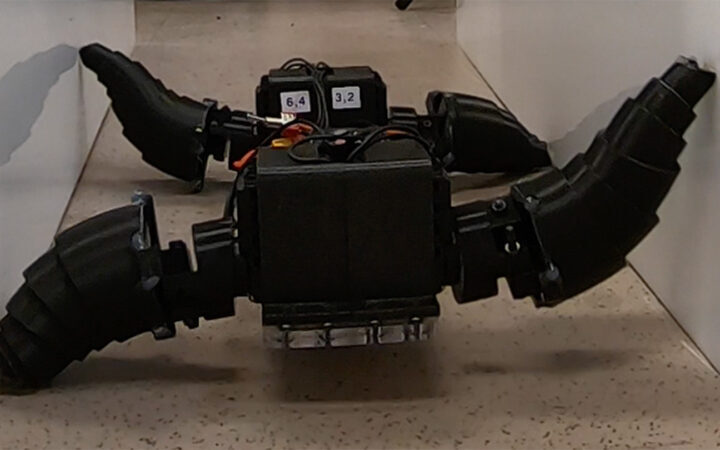
An intelligent alien civilization could beam quantum messages to Earth.
Particles of light, or photons, could be transmitted over vast, interstellar distances without losing their quantum nature, researchers report June 28 in Physical Review D. That means scientists searching for extraterrestrial signals could also look for quantum messages (SN: 1/28/19).
Scientists are currently developing Earth-based quantum communication, a technology that uses quantum particles to send information and has the potential to be more secure than standard, or classical, communication (SN: 6/15/17). Intelligent extraterrestrials, if they’re out there, may have also adopted quantum communication, says theoretical physicist Arjun Berera.
A major obstacle to quantum communication is decoherence, in which a quantum particle loses its quantumness as it interacts with its surroundings. “Quantum states you generally think of as very delicate, and if there’s any kind of external interaction, you kind of destroy that state,” Berera says.
Since the average density of matter in space is much less than on Earth, particles could be expected to travel farther before succumbing to decoherence. So Berera and theoretical physicist Jaime Calderón Figueroa, both of the University of Edinburgh, calculated how far light — in particular, X-rays — could travel unscathed through interstellar space.
X-ray photons could more than traverse the Milky Way, potentially traveling hundreds of thousands of light-years or even more, the researchers found.
Based on the findings, Berera and Calderón Figueroa considered strategies to search for E.T.’s quantum dispatches. One potential type of communication to search for is quantum teleportation, in which the properties of a distant particle can be transferred to another (SN: 7/7/17). Since the technology requires both quantum and classical signals, scientists could look for such simultaneous signals to identify any alien quantum missives.

 A new treatment could restore some mobility in people paralyzed by strokes
A new treatment could restore some mobility in people paralyzed by strokes  What has Perseverance found in two years on Mars?
What has Perseverance found in two years on Mars?  This robot automatically tucks its limbs to squeeze through spaces
This robot automatically tucks its limbs to squeeze through spaces  Greta Thunberg’s new book urges the world to take climate action now
Greta Thunberg’s new book urges the world to take climate action now  Glassy eyes may help young crustaceans hide from predators in plain sight
Glassy eyes may help young crustaceans hide from predators in plain sight  A chemical imbalance doesn’t explain depression. So what does?
A chemical imbalance doesn’t explain depression. So what does?